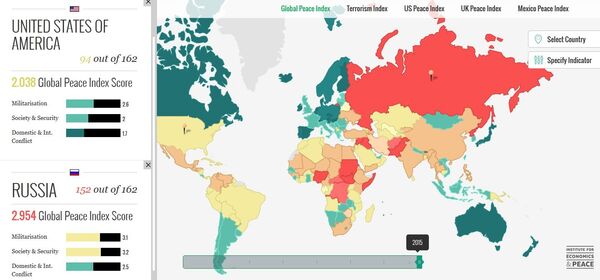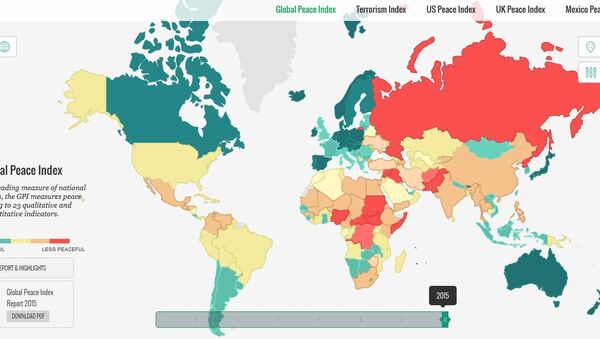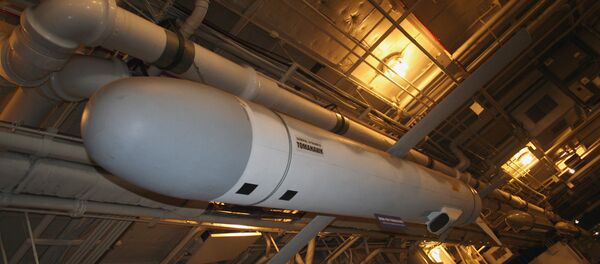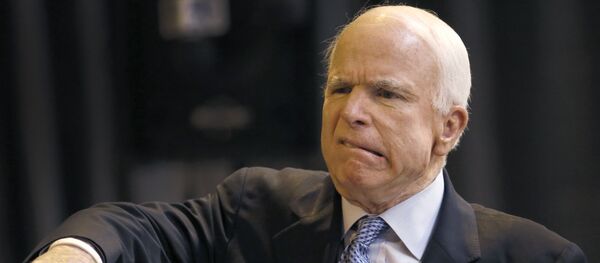The ranking, compiled in a colorful, 120-plus page report, listed Russia 152nd out of 162 countries, between Nigeria and North Korea, and below several countries embroiled in military conflicts and civil war, including Yemen, Libya and Ukraine. Russia is marked in red, indicating it has a 'very low' peace ranking, and is listed among the ranks of countries including Afghanistan, Iraq, Syria, Somalia and Pakistan. At the same time, the Institute's findings ranked the United States 94th, giving it a yellow 'medium' ranking, while all other NATO members received a 'high' and 'very high' peace ranking.
Seeming to take a page straight from the post-Maidan Kiev's propaganda playbook, the report explained Russia's low ranking abroad by claiming that Russia had carried out a policy of aggression against Ukraine, blaming Moscow for destabilizing the country in the aftermath of the Maidan coup, which it called a "popular revolution." Even more absurdly, the report claimed that regular Russian troops were involved in the conflict, backing Ukrainian officials' often-made claims about thousands of Russian troops "propping up" the self-proclaimed Donbass republics.
Given the commentary about "Russian aggression" in Ukraine, observers may find it odd that the US received a better ranking than Russia when it comes to external aggression, despite two active wars, active drone strike programs in several countries, several hundred military bases abroad, and the provision of arms, material and moral support for most of the major conflicts presently taking place around the globe (including Ukraine). How Russia, with its dozen or so military bases, most of them in the former Soviet Union, can be ranked 58 spots below the world's most heavily militarized and militarily active state is something difficult to fathom.

Other rankings on the 1-5 scale which Russian observers may find hard to swallow include the 'access to weapons', 'perceptions of criminality' and 'intensity of internal conflict' indicators, each of them compiled by the Economist Intelligence Unit, a branch of the unabashedly anti-Russian Economist Group. 1990s-era stereotypes and Hollywood movies aside, the idea that Russia today is in the same league on these indicators as countries embroiled in outright civil war is ridiculous. Moreover, ranking Russia worse than the US on 'access to weapons' is a blatant falsity. Unlike the US, which has some of the most lax gun ownership standards in the developed world, Russia has a restrictive gun ownership policy, with citizens requiring licenses from police departments based on residency permits and strict background checks.
Taken together, the prejudiced and murky nature of the perceptions indices used to rank countries for the Global Peace Index show that its creators may have sought to use figures to back up preconceived notions and biases instead of creating a genuinely useful and accurate learning tool.




